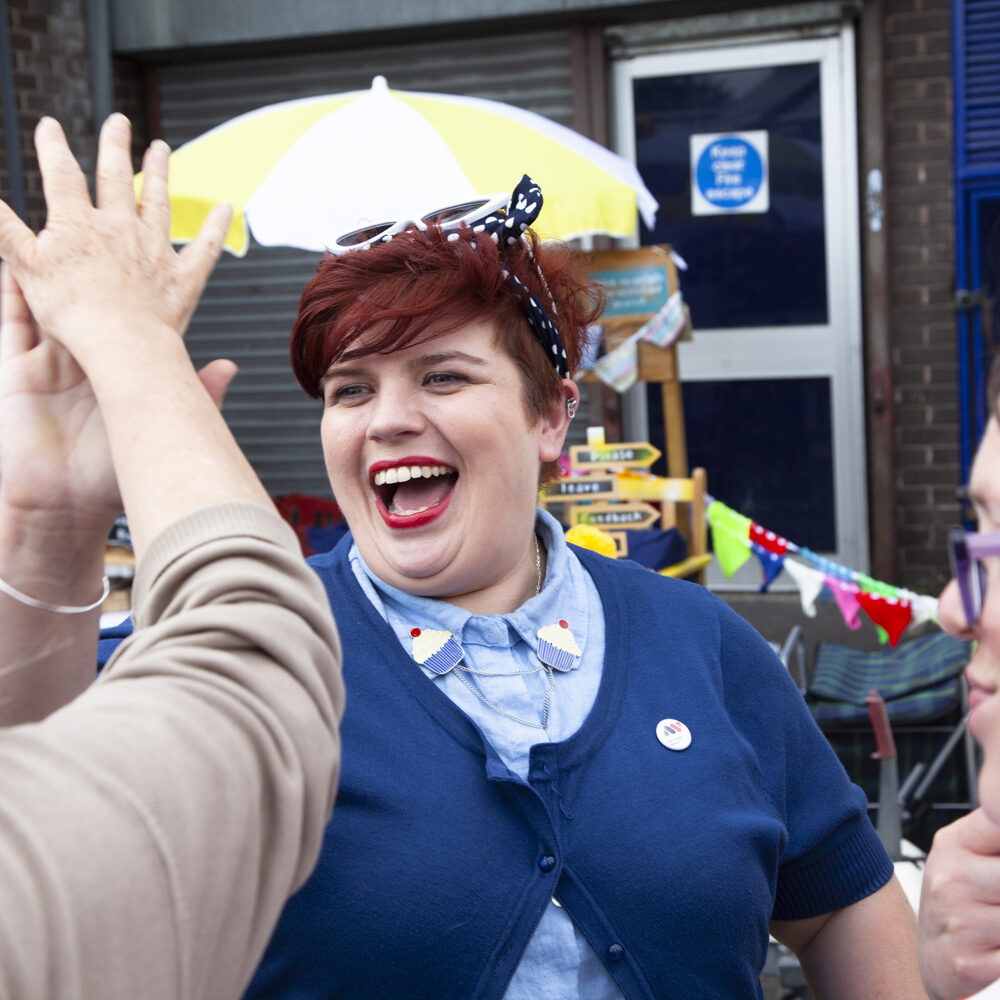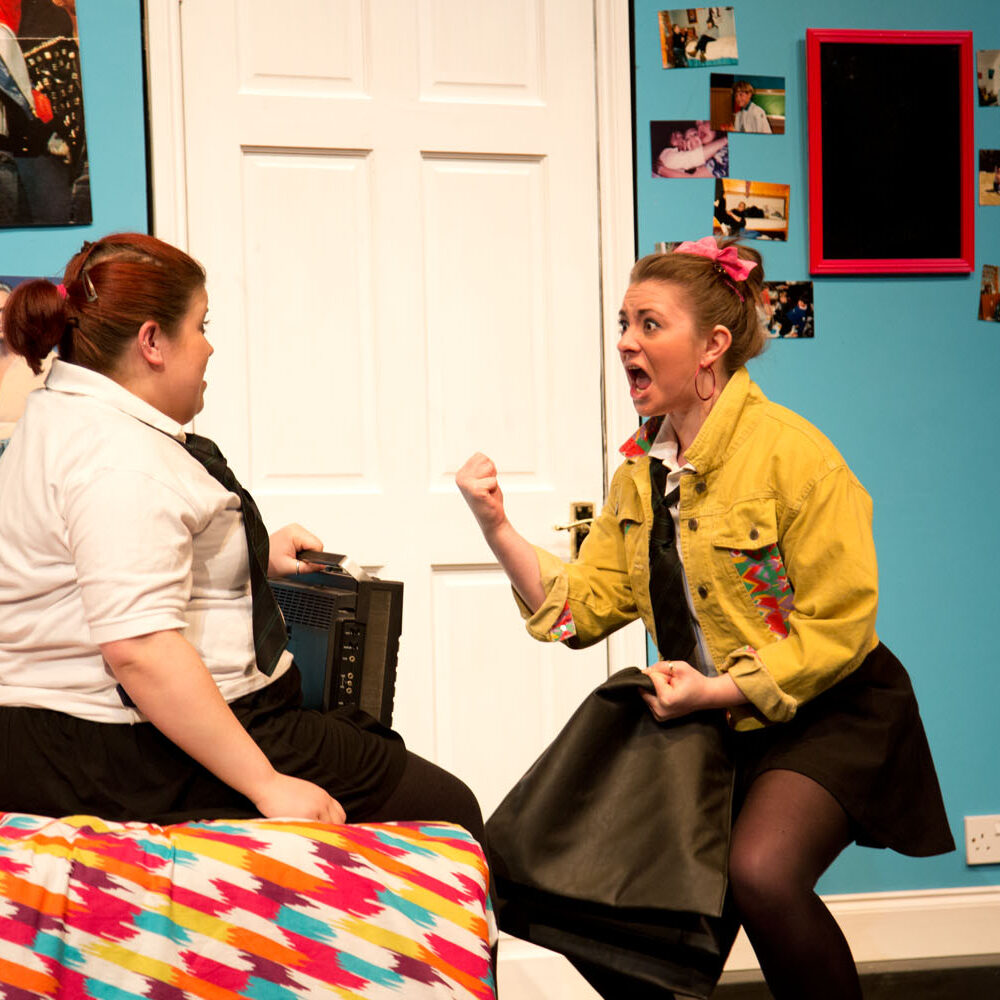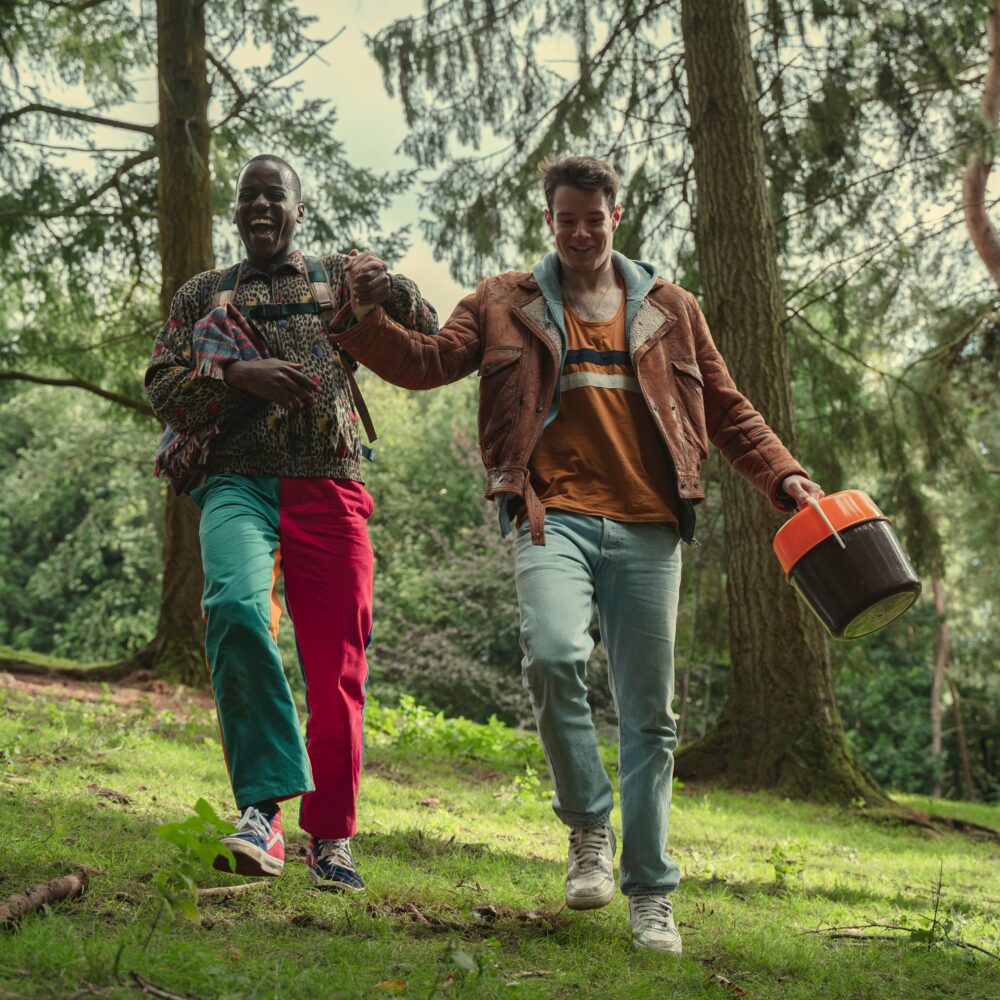



Woman. Bisexual/Pansexual. Working-class. Neurodivergent. I’m a few tick boxes, and ‘coming out’ usually takes 15 minutes, includes a Q&A and a myth-busting FAQ section.
I talk about my sexuality quite a lot, and I’m always correcting people. I very recently had to explain to someone why their thought trail of, “yeah but you’ve been with a woman for 10 years, being with men is in the past” – is not ok. My sexuality doesn’t change, no matter if I’m married, in a long-term relationship, single, or heading down to the shops for a bag of crisps.
Many spaces in society don’t feel welcoming to me. I’m made to feel uncomfortable or turned away for being queer – or not queer enough. The majority of the time, my sexuality is erased because it’s far too complicated to remember that I’m in a decade long monogamous relationship with a woman, but I’m not gay. Apparently, that’s just too much to fathom.
Too often, bisexual/pansexual people are forced into a more ‘sellable’ box to have any sort of visibility. To ‘sell’, I need to be sexy, reject monogamy, be sexually approachable, with an insatiable lust for not just anybody, but everybody. Sexual fluidity has to be sellable, and if you don’t fit into the ‘sexy’ box? You will be rejected into the ‘confused’, ‘greedy’, ‘attention-seeking’ or ‘stepping-stone to gay’ boxes. And actually, us bi/pan people are more at risk of having mental health problems than our gay friends (due to our treatment in society). So, for ease, we’ll break it down into these sellable sub-boxes: ‘sexy’, ‘confused’ or ‘crazy’. Pick your team.
You would hope that there’s refuge in the arts, right? Maybe, if you’re working in theatre – there are some incredible queer women making and leading, but that doesn’t always translate to what is on stage.
The arts have always felt like a liberal and progressive place, embracing and exploring gender and sexuality, challenging perceptions, creating platforms for us to be visible. But there only seems to be two strands of this: queer-centric programming (festivals etc.), where programmes and events are mostly alcohol-fueled; male-centric spaces for over 18s; and the ‘regular’ programme with limited queer representation (unless it’s a camp, friendly, non-threatening, affluent gay man – they’re not going to frighten or confuse your Nana Margaret who might book onto the show). And there can only be one queer character, or the marketing department will think it can only be sold to queer audiences.
While in contemporary and live art scenes, there’s been a decade-long wave of queer women talking about gender and sexuality (usually squeezed onto a ‘queer’ bill or in a non-conventional mainstream space) – where are the plays? The sort of production with a cast of people on bigger stages that your middle class, school trips, parents, and grandparents might be more likely to see. The sort of work that might transfer to bigger stages, longer runs, broader audience demographics, and possible commercial backing.


Sarah Emmott as Hayley and Catherine Pugh as Debbie in Secret Diaries at The Lowry
Secret Diaries was a play we toured in 2014-15. It sold out venues for the public and with schools, including feedback from a 14-year-old boy who told us that, “Hayley has taught me to be more authentically myself.” Even though we were telling a queer story, it wasn’t just for queer audiences.
The play featured queer women coming out, same-sex marriage, and adoption when those legislation changes were new in England. When I was tour booking the play, I was told by about 70% of programmers, “I’m not sure there’s an audience for this type of work,” or “it would only work during our Pride festival programming.”
For some venues that’s true – because if you don’t welcome or provide for queer audiences, we’re not on your radar, and you’re not on ours. That tour sold-out venues, brought new audiences through the door, school trips, and even international press!
Audiences are a mirror to what and who is on stage. That isn’t just me asking for more bisexual characters. It also means that when we’re there, you don’t just kill us off, make us stalkers, confused, unfaithful, or the insatiable lusty killer. We’re sick of being confined to ‘sexy’, ‘confused’, and ‘crazy’ boxes – and we’re definitely worth more than just our coming out stories.
Right now, the arts and particularly theatre, feel like they’re at a tipping point. Once they re-open, they will need to make cold hard cash and quickly – so if they’ve never catered for me before, or poorly catered for me, I don’t see that changing. While they try to compete against TV, film, and streaming platforms, they’re already a decade behind. We’ve got more female representation on panels, quiz shows, stand-up lineups, soaps. Eastenders, after years of bi-erasure, finally has Ash, an Asian woman coming out as bi and correcting people when they assume otherwise (granted, once, but I hold out hope!). Comedy Brooklyn Nine-Nine explores Rosa’s sexuality with humour and sensitivity (even tackling her parents not accepting her because she won’t wear the ‘it’s a phase’ hat), and Sex Education nails it during the scenes on pansexuality with Adam and Ola.
After months of being confined to my house, with my TV providing me with increased representation on screen, what will theatre offer me? I want more than just another ‘coming out’ story. If artists are making more ambitious and progressive work, but venues won’t programme it, and those artists need to pay their rent – they’re likely to make more sellable work. Venues programme it, and it sells in the only week of queer line up available. Venues confirm their assumption of what sells, and no progress is made. Or, if the event doesn’t sell because we’re tired of our theatre experiences being reduced to either LGBTQ+History Month or Pride Month, they can confirm their thought that queer doesn’t sell. Round and round the merri-go-round we go – eurgh. Stop. I want to get off. It’s going to take more than ‘coming out stories’ to get me to come out. We need more. So much more.
Sarah Emmott, Co-Creative Director

Sex Education’s Eric and Adam
We are Art with Heart, and we want to bring together as many people as possible to unlock their creativity and connection to each other. As a registered charity (1205611), donations make it possible to deliver accessible, representative and inclusive projects, to engage more people, employ more freelancers and plan further into the future. Together, we are building Art with Heart, we would love you to join us! CLICK HERE to donate through our Ko-fi campaign.